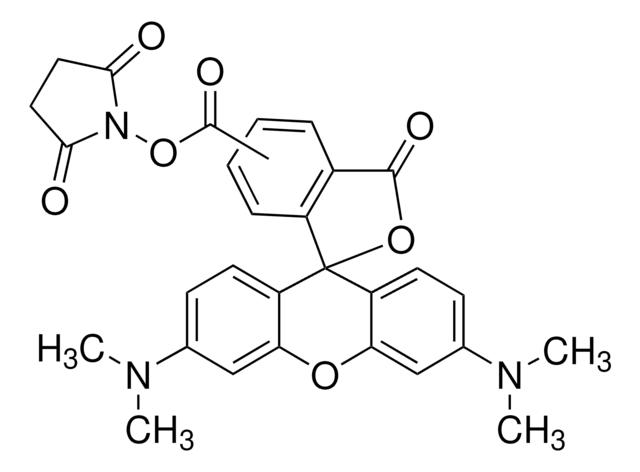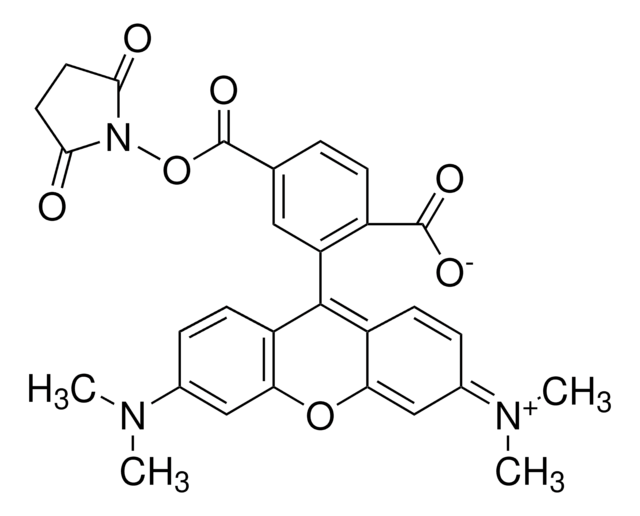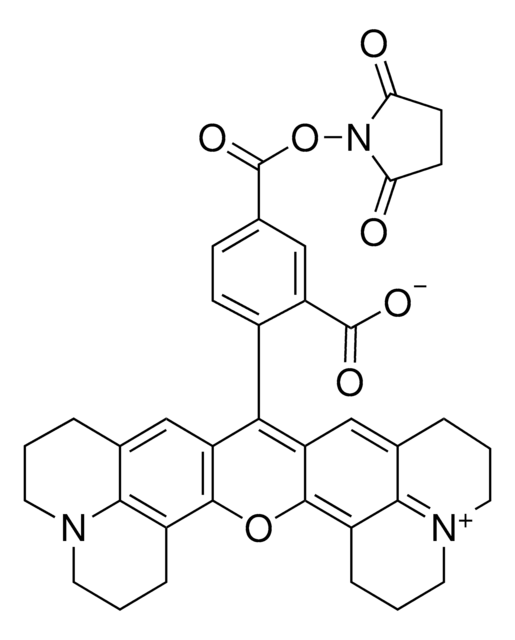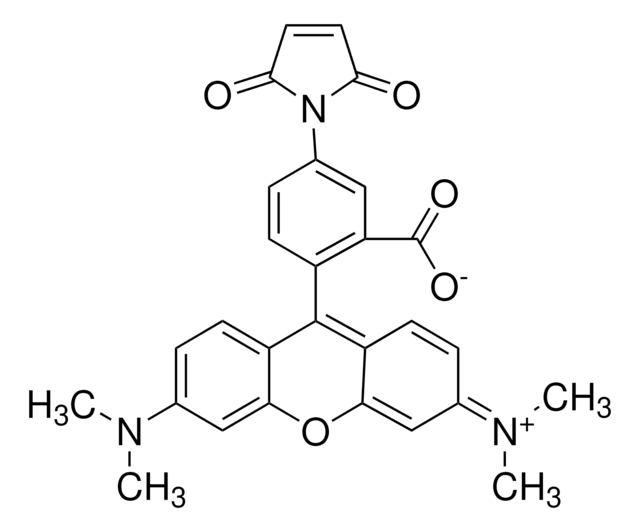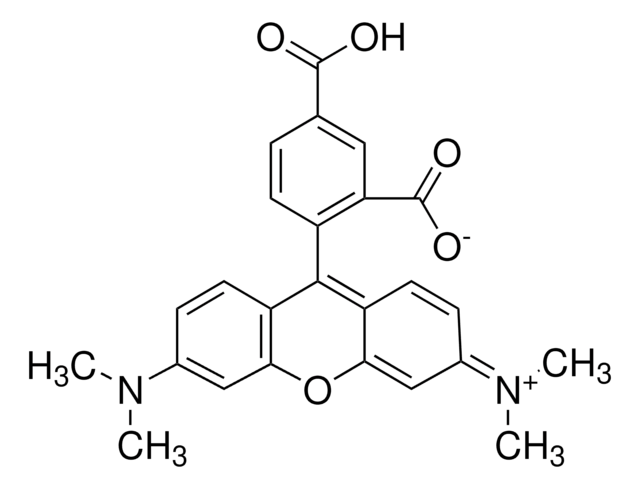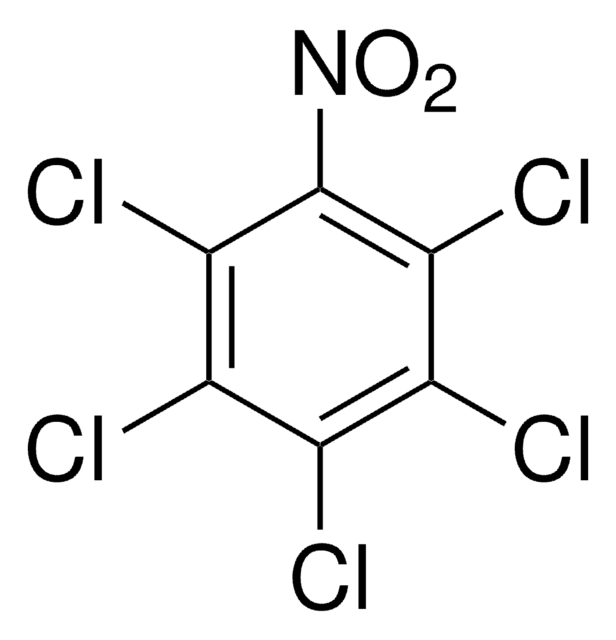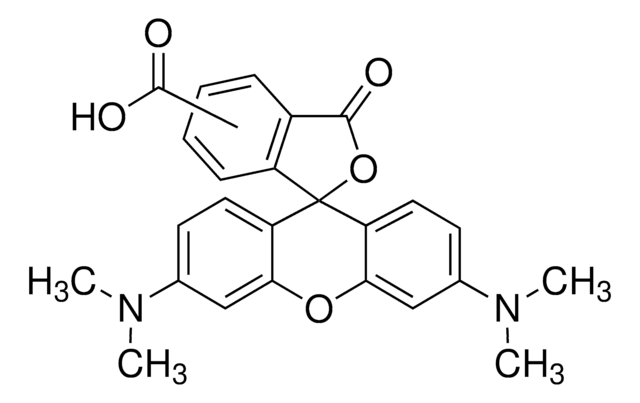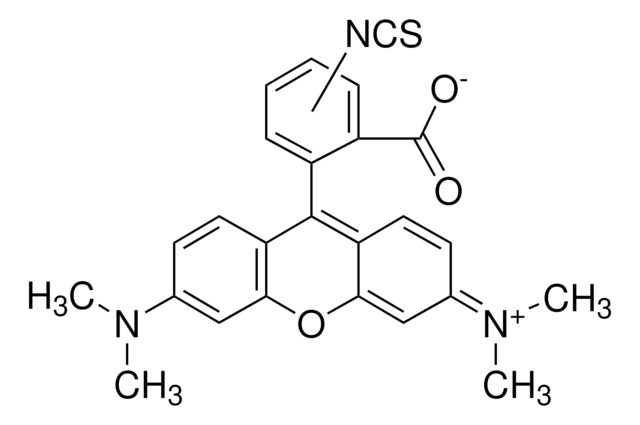53048
5-Carboxy-tetramethylrhodamine N-succinimidyl ester
BioReagent, suitable for fluorescence
Synonym(s):
"4-Carboxytetramethylrhodamine N-succinimidyl ester", 5-TAMRA
About This Item
Recommended Products
product line
BioReagent
Quality Level
solubility
DMF: soluble
acetonitrile: soluble
fluorescence
λex 543 nm; λem 578 nm in 0.1 M phosphate pH 7.0
suitability
suitable for fluorescence
storage temp.
−20°C
SMILES string
CN(C)c1ccc2c(OC3=C\C(C=CC3=C2c4ccc(cc4C([O-])=O)C(=O)ON5C(=O)CCC5=O)=[N+](\C)C)c1
InChI
1S/C29H25N3O7/c1-30(2)17-6-9-20-23(14-17)38-24-15-18(31(3)4)7-10-21(24)27(20)19-8-5-16(13-22(19)28(35)36)29(37)39-32-25(33)11-12-26(32)34/h5-10,13-15H,11-12H2,1-4H3
InChI key
VWFRSNKRTNUMET-UHFFFAOYSA-N
Related Categories
Application
Other Notes
Storage Class Code
11 - Combustible Solids
WGK
WGK 3
Flash Point(F)
Not applicable
Flash Point(C)
Not applicable
Personal Protective Equipment
Certificates of Analysis (COA)
Search for Certificates of Analysis (COA) by entering the products Lot/Batch Number. Lot and Batch Numbers can be found on a product’s label following the words ‘Lot’ or ‘Batch’.
Already Own This Product?
Find documentation for the products that you have recently purchased in the Document Library.
Customers Also Viewed
Articles
Fluorescent Labeling of Peptides
Our team of scientists has experience in all areas of research including Life Science, Material Science, Chemical Synthesis, Chromatography, Analytical and many others.
Contact Technical Service